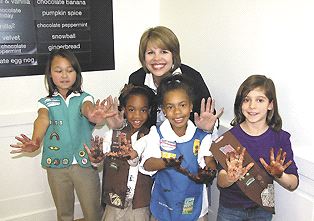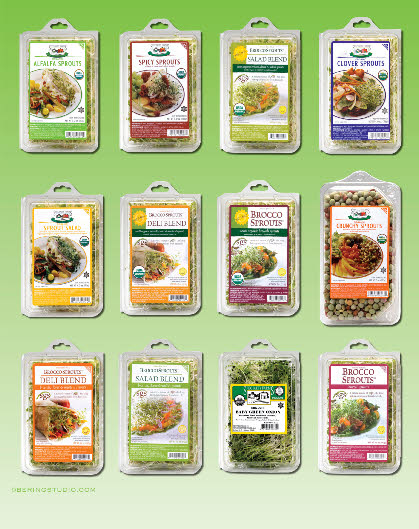Browsing through the channels the other night, I came across one of the many food porn shows on TV, DC Cupcakes. Being the food safety observer I’ve become, I thought I’d watch for food safety faux pas. I wasn’t disappointed.
 The owners were hosting the Girl Scouts of America, who needed to earn their baking badges. This was especially significant because the bakers had failed to earn their baking badges back in the day.
The owners were hosting the Girl Scouts of America, who needed to earn their baking badges. This was especially significant because the bakers had failed to earn their baking badges back in the day.
The cupcake experts started with egg and butter tips. One of them told the girls that the cupcake batter would be better if the eggs and butter were at room temperature prior to mixing them. As she said this, she handed an egg to each of the girls, one of which dropped it on the counter.
After they all cracked their eggs in a bowl, including the cracked one, they proceeded to feel how soft the butter was. No handwashing featured after touching the eggs or before contaminating the butter (and everything else they came in contact with for that matter).
As demonstrated by a recent salmonella outbreak in a Rhode Island bakery, which may have been the outcome of contaminated eggs, it’s important to follow simple safety practices such as handwashing. Especially in the food production business.
Maybe that’s why the DC ladies didn’t earn their baking badge when they were Brownies.


.jpg)

(1).jpg)
.jpg) monocytogenes. They claim that no illnesses have been reported, but we’ve all heard that one before.
monocytogenes. They claim that no illnesses have been reported, but we’ve all heard that one before..jpg) Decadent Chocolate Chunk Cookies had a very different news release. The company responsible included all the necessary information to identify and avoid the product, which is not tainted with Listeria but contains metal pieces.
Decadent Chocolate Chunk Cookies had a very different news release. The company responsible included all the necessary information to identify and avoid the product, which is not tainted with Listeria but contains metal pieces.


.jpg)
